5 Mind-Blowing Mandela Effects – Are There Glitches In Reality?
Can there be glitches in reality? Are we living in a simulation-like universe, similar to the one portrayed in the movie ‘The Matrix’? Is what people say about the Mandela Effect real, or is it simply a result of what psychologists refer to as ‘false memory’? If it isn’t real, then how can so many people collectively recall events that never happened? Could this phenomenon be connected to concepts such as parallel universes, alternate realities, or the multiverse? These questions have always intrigued me, which is why in this post, I will discuss 5 mind-blowing Mandela Effects that a significant number of people agree on. It’s this widespread agreement that makes it challenging to attribute the phenomenon solely to a psychological explanation.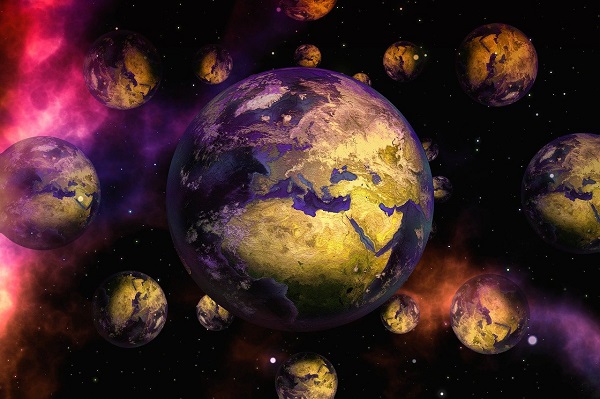
It is true that in a universe where everything operates according to well-established cause-and-effect mechanisms, which have been studied for centuries, we can now even predict with precision the time it will take for a bullet fired from an aircraft to reach its target. In such a context, discussing something that appears to defy all logic may seem unreal. We have been so accustomed to witnessing the evidence of logic in our lives that we often lack the open-mindedness to entertain the possibility of accepting something beyond our current comprehension.
I am not suggesting that we should readily embrace wild theories and widespread myths. However, maintaining an open mind to consider possibilities that extend beyond what can be explained by our current level of knowledge about the universe is essential. Despite our significant advancements in the field of science, there are still numerous unanswered questions.
One of those questions pertains to the Mandela Effect. While I am well aware of the stories and conspiracies that have circulated around this phenomenon, there’s an aspect of it that cannot be dismissed as mere imagination. Before I delve into the five mind-bending Mandela Effect-related occurrences, let me provide a brief explanation of what this phenomenon is and how scientists often attribute it to what they call ‘false memory.
What Is the Nelson Mandela Effect and How Is It Associated With False Memory?
Basically, this effect is a term given to a shared memory that many people have, which is inconsistent with reality. It acquired its name from the widespread false memory that people have about Nelson Mandela dying in prison in the 80s. Some of these shared memories are so strong and firmly held that it becomes really hard for people to believe that their recollection of something isn’t actually true.
It happens in all family and social circles, right? We discuss something, and everyone agrees because that’s what everyone remembers happening. Then, someone comes along with strong pieces of evidence and proves us all wrong. One day, I was having a discussion about an old TV commercial with my friend, which featured a famous actor. At that moment, one of our other friends joined the discussion, saying that I had mistaken that actor for someone else. But I was so sure about my memory of that commercial, and the other three friends were agreeing with me. However, this person proved us all wrong by searching relentlessly on YouTube for that commercial and finally finding it. Until then, my memory of the commercial was so strong that I refused to accept my friend’s word, as did my other friends. Well, this is what they call a collective or shared false memory.
False memory is a psychological phenomenon where a person remembers events differently from their actual occurrences. In extreme cases of such cognitive dysfunction, one’s mind can lead one to believe in memories that are entirely fabricated and unrelated to reality. However, in the case of a group of people, false memory is often caused by mental associations between various pieces of information, leading to the creation of memories that are slightly or entirely different from reality—a sort of illusion.
The widespread internet theories concerning cartoon characters and logos have been substantiated by studies on the visual Mandela Effect. This phenomenon arises from false memories created by our brain’s innate inclination to imagine things (this is why creative visualization is so powerful, it works on your beliefs) and add extra elements to images based on their characteristics and associations. Consequently, groups of people form false memories of visuals they encountered long ago.
So, now it seems that most of the discussions about parallel universes and reality shifting, based on this particular theory, appear to be unfounded, right? We can conclude that this entire phenomenon primarily stems from errors in recalling events, with what happens on an individual level occurring on a larger scale in this case. It’s possible that the misinterpretation of things has led to widespread agreement. But hold on; it might be too early to draw such conclusions. Let me pose a question here: What happens when someone disproves your memory of something with concrete evidence as my friend did in that case?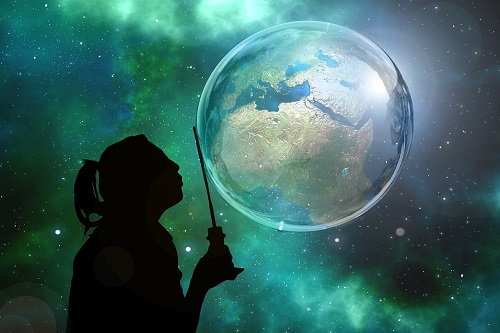
Typically, one tends to align their beliefs with presented evidence, as I did when my friend showed me the actual commercial. However, a different dynamic emerges when we delve into certain Mandela Effect examples. These are instances where people exhibit such unwavering conviction in their memories that they even dismiss contrary evidence. It’s a curious phenomenon, isn’t it? Can a substantial number of individuals persist in their convictions, steadfastly asserting they’ve witnessed something different, despite being disproven?
This complexity parallels discussions about ghosts, UFOs, and other phenomena that numerous individuals claim to have experienced with unshakable certainty. Such accounts pose a challenge to simple dismissal. Hence, we are about to explore some common Mandela Effect examples that enjoy widespread acknowledgment among many people. These instances defy both evidential scrutiny and psychological explanations. I invite you to critically analyze these instances for yourself. Do you share their recollection, or do you perceive these examples in accordance with the accepted reality? Let’s find out.
# 1 Star Wars Dialogue
Are you into Star Wars? What do you remember Darth Vader’s famous line, “Luke, I am your father”? Well, he never actually said that. It’s kind of weird, right? People either misremembered it and made it popular, or maybe the whole Mandela effect thing is legit!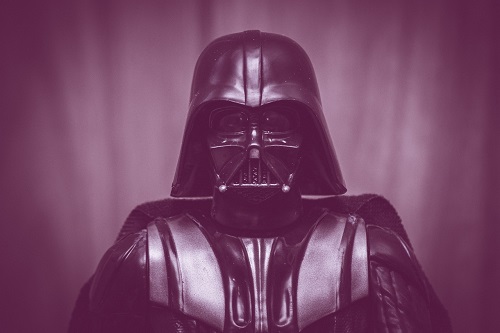
In the actual movie, Darth Vader drops the bombshell with, “No, I am your father.” It’s funny how everyone keeps getting that wrong, isn’t it? That famous “Luke, I am your father” line? Nope, never happened in “The Empire Strikes Back.” Such an iconic scene and so many people don’t remember the exact words. Honestly, that’s more mind-blowing than the plot twist itself.
Some folks are cool with admitting they might have tweaked their memory a bit, while others think it’s always been this way. But there’s a solid chunk of die-hard Star Wars fans who still think reality is playing tricks on us.
#2 The Monopoly Guy
You know what sparks a lot of arguments? Whether the Monopoly guy, the one from the board game, ever wore a monocle, those small eyeglasses. Well, here’s the surprising part – he never actually had one! It’s weird, isn’t it? This makes me wonder about the idea of different realities because I am pretty certain I remember him with a monocle.
What’s even more mind-boggling is that this idea was so widespread that in many TV shows and movies, they talked about the Monopoly guy with his monocle, including that funny scene in “Ace Ventura” where Jim Carrey makes jokes about a guy who looks like the Monopoly guy. And nobody questioned it until this theory became famous and people realized he didn’t actually ever have a monocle. It’s strange how an image we all grew up with can be remembered incorrectly by so many people. Forgetting something is one thing, but being so sure about something that was never true is even weirder than what we can explain with logic.
#3 Location of Newzealand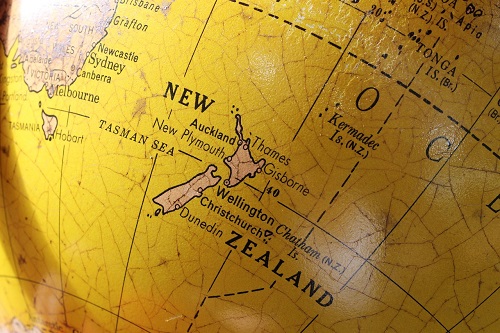
New Zealand is situated to the right of Australia on the world map, but surprisingly, many people remember it differently. A significant number of individuals claim to have a memory of New Zealand being on the left-hand side of Australia in atlases. This is the most widely discussed geographical example of the Mandela effect.
While there have been discussions about people remembering various locations on the map differently, including countries like Japan, Korea, and Russia, the idea of New Zealand being on the left side of Australia is the most well-known example. Some people even recall marking it that way on maps during their school days and seeing it depicted like that in various books.
Now, I’m not particularly skilled in geography, so if you were to tell me that Canada is located to the south of the USA, I might not argue, but there are individuals who take pride in their geographical memory and still insist that New Zealand was once in a different position on the map.
#4 Snow White
You know that famous line, “Mirror Mirror on the wall, who is the fairest of them all”? Well, the evil queen never actually said “Mirror Mirror.” Instead, the line starts with “Magic Mirror.” It’s probably the most common example of people collectively misremembering something because almost everyone remembers it as “Mirror Mirror on the wall.” The memory of it being that way is so strong that “Magic Mirror on the wall” almost feels like a poor rewrite of a classic line!
This is where this theory starts making us seriously doubt our reality. How did so many people mishear something and keep saying it that way for so long without anyone correcting them? I don’t know about you, but I never remembered the line as being “Magic Mirror.” It could be because the incorrect version became popular, but “Mirror Mirror on the wall” is a line that’s hard to forget, even though it never actually existed.
# 5 Pikachu
There are numerous cartoon characters and cartoon names that are believed to be slightly different in many people’s memories. From the Flintstones being spelled as “Flinstones” to “Looney Tunes” being remembered as “Looney Toons,” there have been many discussions about people’s memories not matching the actuality of these cartoons. However, what truly stands out among these discussions is Pikachu, one of the most beloved anime characters that was a part of the childhood of many 90s kids like me.
Do you remember Pikachu? How do you recall that cute Pokémon’s tail? Well, many people claim that Pikachu’s tail had a black tip when in reality, it was plain yellow. The image of Ash’s Pikachu with a black tail tip is so ingrained in the minds of many people that they are certain some sort of reality shift has occurred. Personally, I didn’t pay much attention to the details, which is probably why this didn’t confuse me much. However, I am aware of the group that swears they remember a different version of Pikachu.
I have selected these 5 examples of the Mandela effect out of hundreds because the number of people who believe in these examples is staggering. I chose them after considering the intensity of these claims. Speaking of the intensity of these claims, let me share something interesting with you that believers in the Mandela effect refer to as “Mandela effect residue.”
Actually, I already provided an example of this involving Jim Carrey’s movie in a previous instance. This is what they call residue – it’s when these instances are mentioned in famous shows or referenced in the way people remember them, even if they don’t actually exist, or when there’s some kind of evidence from the past that suggests these claims might be true. However, whether the mentions of such things in recorded media serve as evidence for the Mandela effect or if they are the cause behind the creation of false memories is a million-dollar question.
One thing that has puzzled me is an Indian example of this Mandela effect that I recently came across. India does not have a national game, and as an Indian, I can attest that during my childhood, kids used to challenge each other with this question, bewildering their minds because our most beloved sport, Cricket, is not the national sport. Surprisingly, neither is Hockey. In fact, in my school, I even answered this as part of a quiz. Even today, a significant number of people in India believe that Hockey is their national sport. It leaves me wondering whether this is a widespread misconception or if we’ve somehow shifted into a parallel world!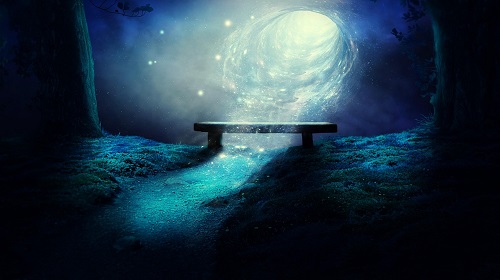
I hold a belief in the possibilities of parallel worlds, but whether we can travel to these realms, or if we already have, as some Mandela effect believers claim, remains uncertain until the truth behind such mysteries is uncovered. I neither categorically reject these theories nor fully embrace them because some of these examples align with my own experiences.
Whether you believe in such phenomena or not, theories like these and concepts like what have been shown in movies like Matrix do tell us a lot about our mind, I also recognize the power of our subconscious mind and how false memories can feel genuine, especially when one’s mind repeatedly encounters specific information or thoughts, particularly in a relaxed state like what is known as the alpha level of the mind.
Frequently Asked Questions: Mandela Effect & False Memory
1. What is the Mandela Effect?
The Mandela Effect refers to a phenomenon where many people share the same vivid but incorrect memory about an event or detail—like believing something happened when it didn’t. It gets its name from the common but mistaken belief that Nelson Mandela died in prison in the 1980s.
2. Did Nelson Mandela die in prison in the ’80s?
No. Nelson Mandela was released from prison in 1990, became South Africa’s president from 1994 to 1999, and passed away in 2013. The belief that he died in prison is a well-known example of the Mandela Effect.
3. Does the Monopoly guy have a monocle?
No, the Monopoly mascot “Rich Uncle Pennybags” never had a monocle. The belief that he did is a classic Mandela Effect example and is likely due to visual confusion with similar characters.
4. What is false memory?
A false memory is when someone vividly remembers something that either didn’t happen or occurred differently from how they recall it. These memories can feel just as real as true ones.
5. How can false memory cause the Mandela Effect?
False memories often arise due to the brain storing general ideas instead of exact details. Social influence, media, and repeated misinformation can reinforce these errors, leading large groups to misremember the same thing—this is how the Mandela Effect is formed(probably).
6. What are some popular Mandela Effect examples?
- “No, I am your father” (not “Luke, I am your father”) – Star Wars
- “Magic Mirror on the wall…” (not “Mirror Mirror…”) – Snow White
- Pikachu never had a black-tipped tail
- New Zealand’s location is often misremembered relative to Australia
What are your thoughts on this topic? Do you believe it’s primarily a result of collective false memory arising from mix-ups, misinterpretations, and the mind’s tendency to link various pieces of information? Or do you suspect there might be something more enigmatic at play? Do you have any personal Mandela effect stories or instances to share? Please share your insights, feedback, and opinions in the comments below. Your valuable input motivates me to create more content like this.
If you have questions or require assistance with any issues, please don’t hesitate to reach out via the contact page. I’m here to help.
If you found this post enjoyable, consider sharing it on your social networks to help spread the word.
